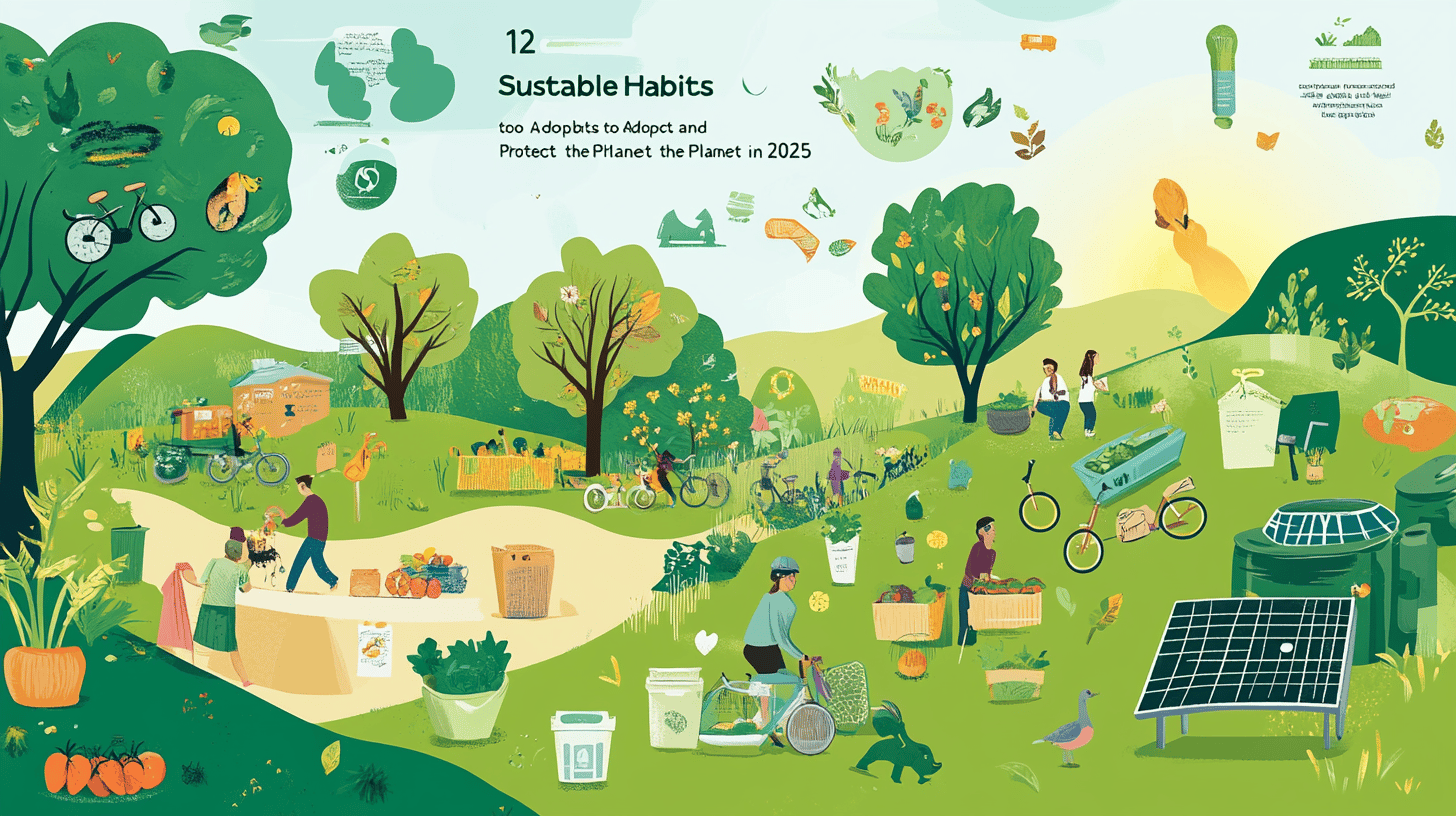Sustainability has become an undisputed priority for many individuals and communities around the world. With growing awareness about climate change and the impacts of human action on the environment, adopting sustainable habits is more important than ever. In this article, we will explore 12 sustainable habits that you can incorporate into your daily life starting in 2025, contributing to a healthier and more balanced planet.
1. Reduce, Reuse and Recycle
The traditional motto “reduce, reuse, and recycle” is one of the pillars of sustainability. Reducing the consumption of disposable products, such as plastic bags and straws, is essential. Reusing items, such as glass jars and packaging, can reduce the amount of waste generated. And whenever possible, recycle materials such as paper, plastic, and metal. Learning about recycling in your area can help ensure that your recyclables are properly treated.
2. Save Water
Water is a precious and scarce resource in many parts of the world. To save water at home, start by fixing leaks and replacing faucets or showerheads with water-efficient models. Also, avoid leaving the water running while brushing your teeth or washing dishes. A good habit is to collect rainwater to water plants or clean your house.
3. Choose Sustainable Transport
Reducing your reliance on combustion-powered vehicles is essential to reducing pollutant emissions. Consider using public transportation, cycling, or carpooling. If possible, walk for shorter distances. This is not only a sustainable habit, but also a way to stay active and healthy.
4. Eat Local and Organic Foods
By eating local, you not only support local farmers, but you also reduce the carbon footprint associated with transporting your produce. Organic farming also uses fewer pesticides and chemical fertilizers, which benefits the health of the soil and ecosystems. Additionally, whenever possible, avoid processed foods, which generate a lot of packaging and waste.
5. Reduce the Use of Plastics
Plastic pollution is one of the biggest environmental challenges. Bring your own reusable bag when you go shopping and opt for products with less packaging. Opt for plant-based or compostable alternatives for items like cups and straws. By reducing your demand for plastic, you’ll be making a big difference.
6. Become a Conscious Consumer
Research the companies you support and their production practices. Choose brands that prioritize sustainability and ethics in their production. Also, avoid impulse purchases, which can lead to the accumulation of unnecessary items. Conscious consumption is an essential step in the fight against overproduction and waste.
7. Keep Track of Food Waste
Food waste is a global problem. Planning your shopping, storing food properly, and using leftovers can all help reduce waste. Use recipe organization and inventory apps to optimize the use of ingredients you already have. Also, consider composting food scraps, which can return nutrients to the soil.
8. Adopt Sustainable Gardening Practices
If you have an outdoor space, consider creating a sustainable garden. Plant native species that require less water and maintain healthy soil without using chemicals. Organic gardening can also include installing drip irrigation systems and planting flowers that attract pollinators.
9. Use Energy Efficiently
Reducing your energy consumption is vital to a healthier planet. Use LED light bulbs, keep electronic devices unplugged when not in use, and consider investing in renewable energy sources like solar panels. Additionally, good insulation in your home will help maintain the temperature, reducing the need for heating or cooling.
10. Practice Social Mobilization
Get involved in your community and take an active stance on environmental issues. Join environmental protection groups, participate in beach or park clean-up initiatives, and participate in environmental education. Local activism can have a big impact and inspire others to adopt positive practices.
11. Share and Trade Items
The sharing economy is a growing trend. Consider joining a swap group, where you can share or trade items you no longer use, such as clothing, furniture, or tools. In addition to promoting reuse, this practice helps build a sense of community and solidarity.
12. Educate Yourself and Others About Sustainability
Finally, education is a powerful tool. Take every opportunity to learn more about sustainability and discuss the topic with friends and family. Lead workshops or organize informational events in your community. The more people who are informed, the more positive impact we will have as a society.
Conclusion
Adopting sustainable habits not only helps protect the planet, but can also improve your quality of life and promote a healthier environment for future generations. Changing small behaviors can lead to big results. Start now with these 12 suggestions and inspire those around you to do the same. So that together we can ensure a more sustainable future, remember: every action counts! What habits do you already practice or plan to adopt? Share your experience in the comments below!



